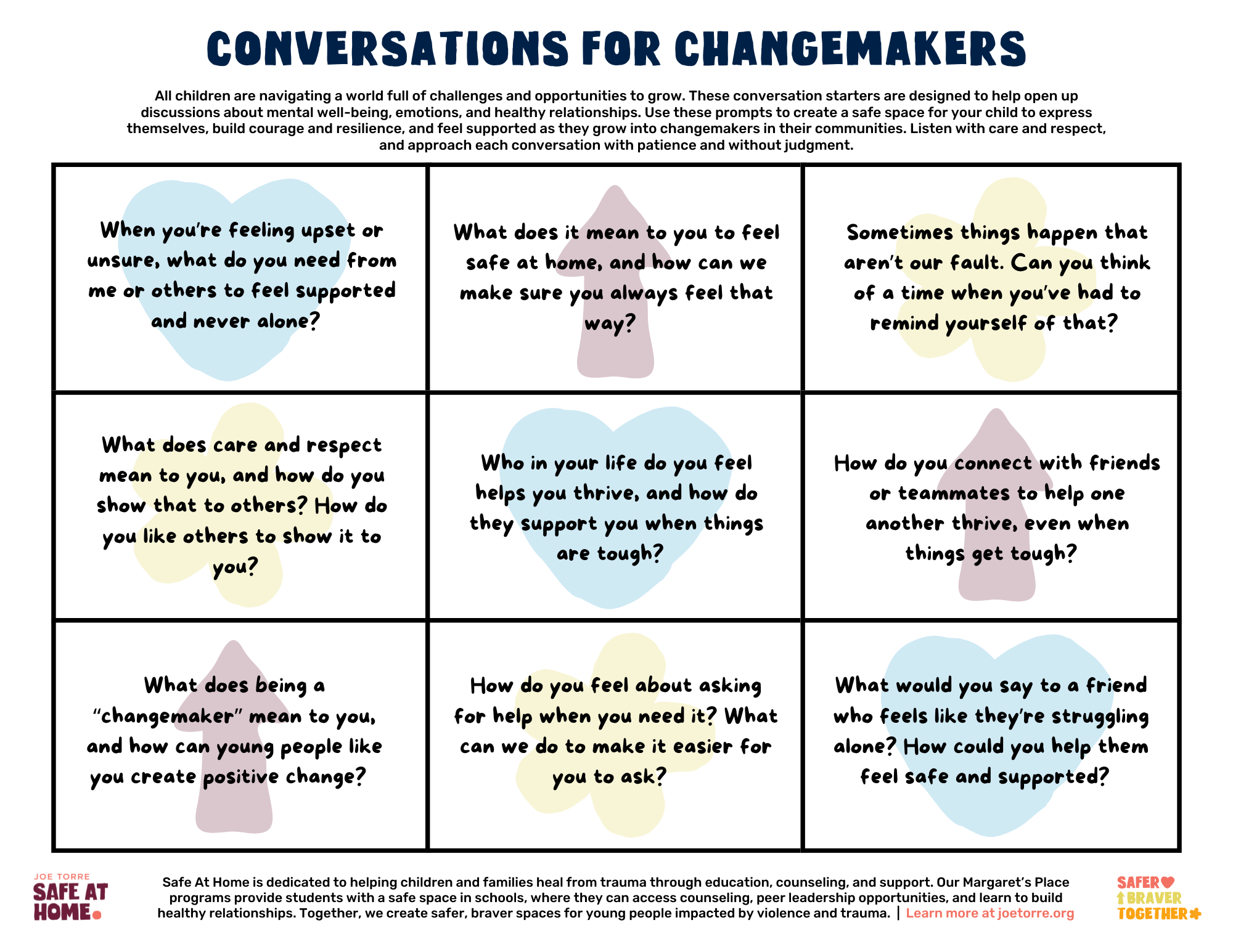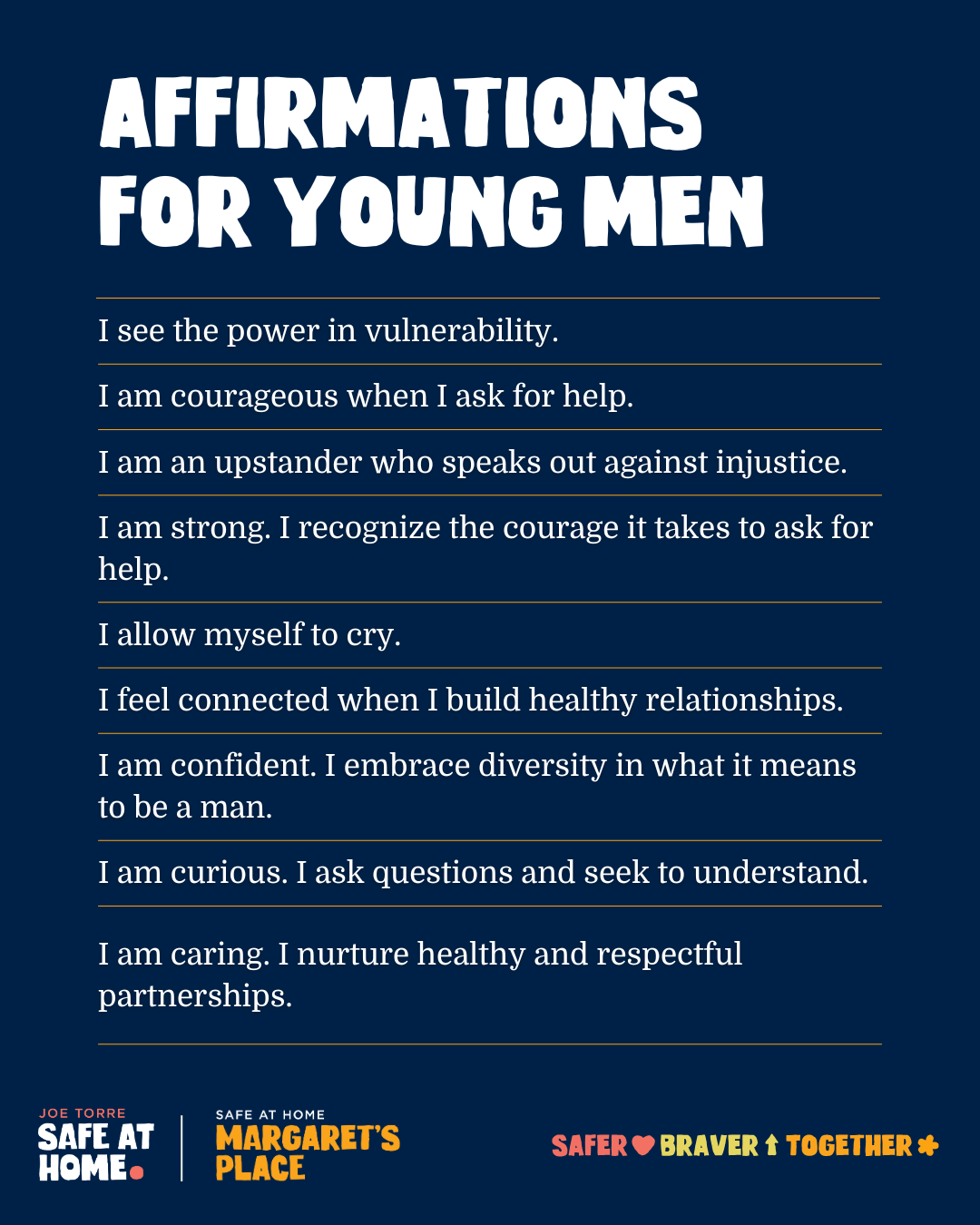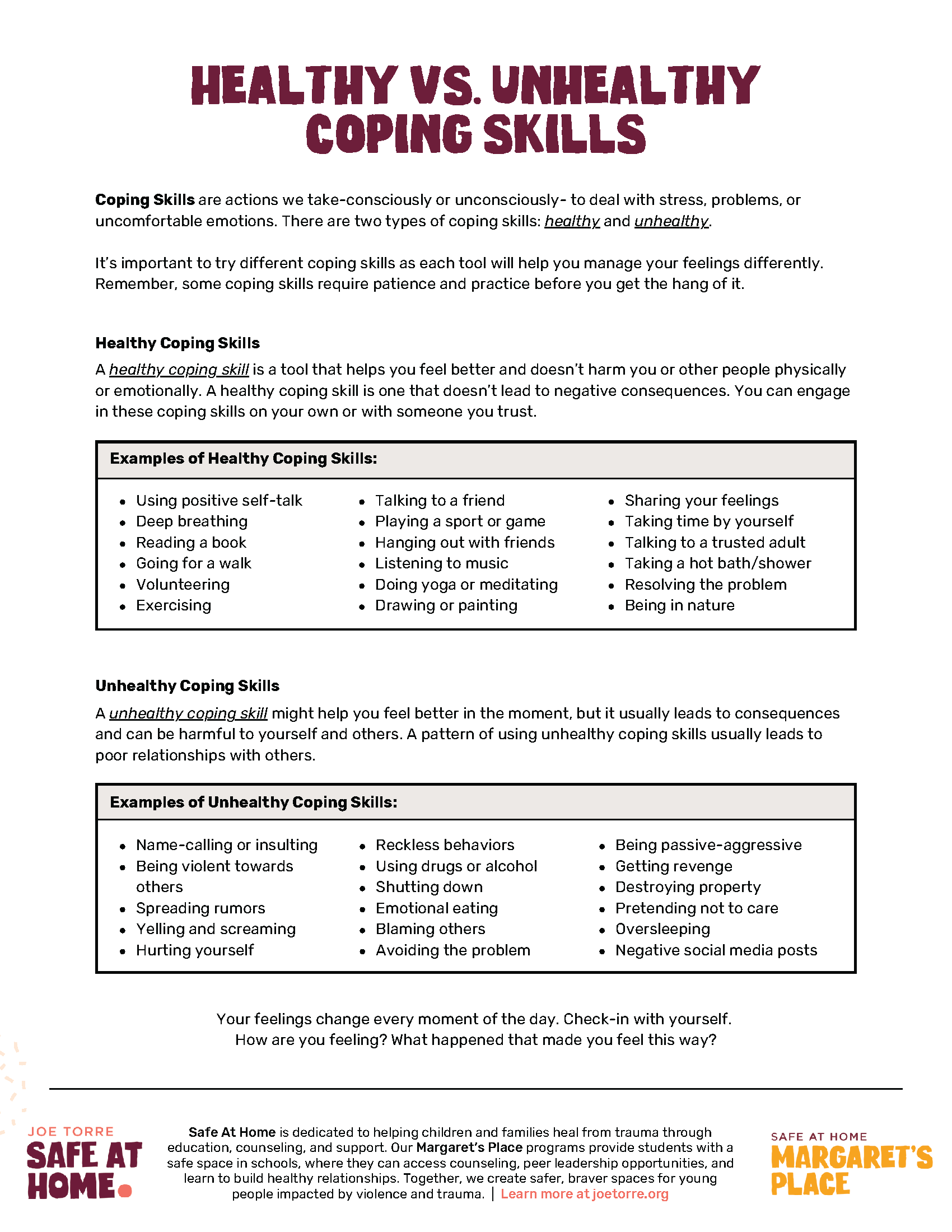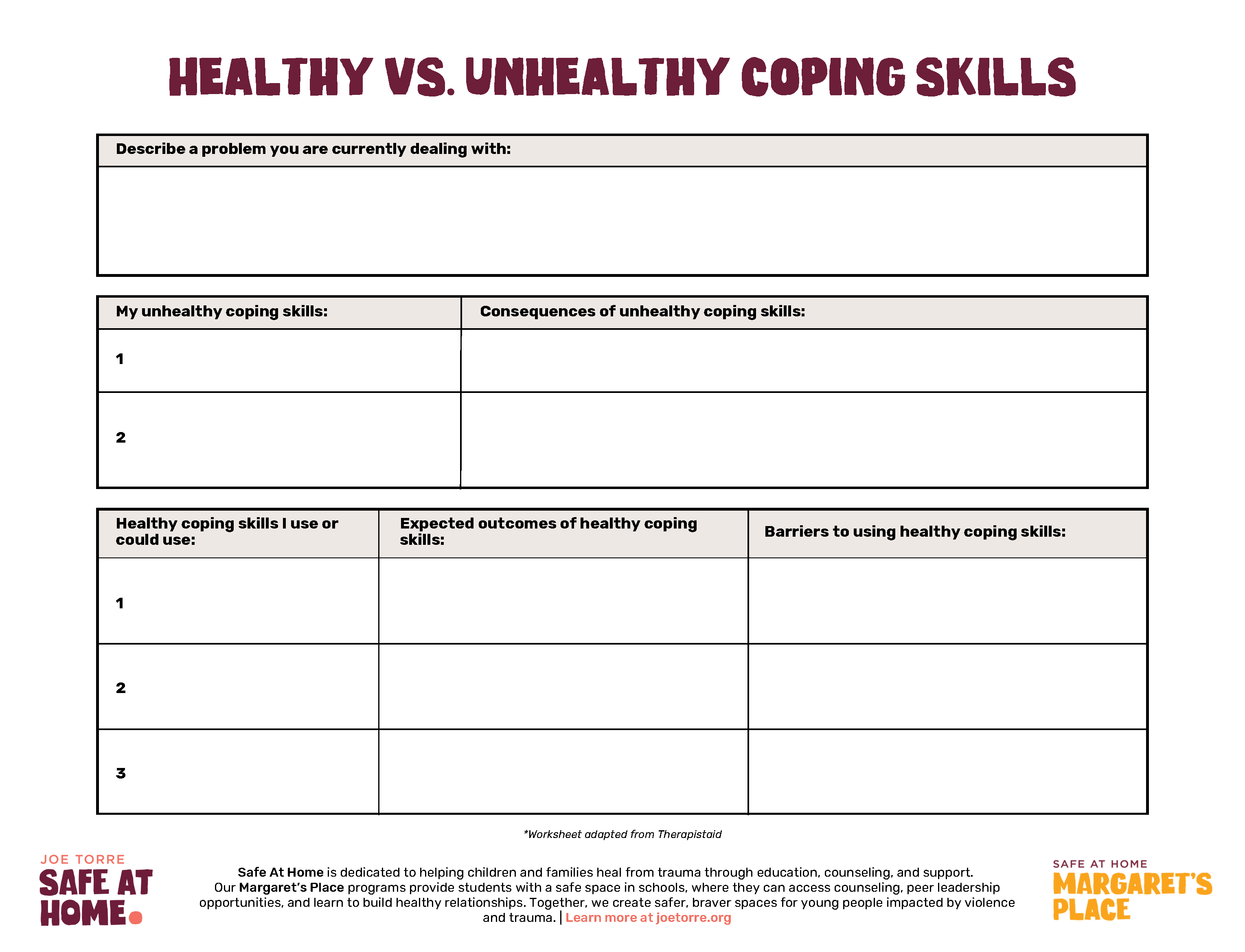Supporting Boys, Young Men, and Male-Identifying Individuals:
The Importance of Community and Connection for Mental Health
November 20, 2024
November brings Movember, a global movement spotlighting men’s mental health and well-being. It’s the perfect time to address the unique challenges faced by boys, young men, and male-identifying individuals. Societal pressures often discourage vulnerability and help-seeking, leaving many feeling isolated. However, building community and fostering connection can significantly bolster resilience and improve mental health outcomes.
Why Community Matters
Peer groups play a critical role in shaping identity and self-esteem for boys, young men, and male-identifying individuals. Without supportive environments, they may turn to unhealthy outlets to find belonging. Research shows that isolation increases the likelihood of risky behaviors as youth seek connection in unsafe ways (Dukes & Martinez, 2017). Programs like Safe At Home’s Margaret’s Place provide essential spaces for young people to connect, discuss emotions, and develop healthy relationship skills.
Practical Ideas to Foster Connection
Encouraging positive peer interaction can reduce feelings of isolation and boost self-esteem. Here are some ideas:
- Group Activities: Team sports, after-school clubs, or group therapy encourage collaboration and expression in supportive settings. At Margaret’s Place, group programs tailored to young men use creative outlets like art and music to foster connection and self-expression.
- Long-standing Community Traditions: Activities like neighborhood pick-up sports, free library programs, and mentoring initiatives naturally cultivate connection. The CDC highlights the positive impact of structured mentorship programs in reducing risky behaviors (CDC, 2021).
Tips for Caregivers and Educators
Supporting youth mental health doesn’t always require professional intervention. Small actions can make a big impact:
1. Encourage Open Conversations
Ask open-ended questions like, “How did that make you feel?” or “What might make this situation easier?”
Download our Conversation Cards for Changemakers to spark meaningful discussions at home or in group settings.
Or view our video on Effective Communication: A Guide For Parents

2. Model Healthy Coping Skills
Demonstrate techniques like journaling or deep breathing, encouraging youth to explore what works for them.
For extra support, download our Coping Skills Worksheet—a helpful tool to guide youth in identifying and practicing healthy ways to manage stress and emotions.
3. Normalize Seeking Help
Emphasize that asking for support is a strength. Share emergency resources to ensure youth know where to turn.
Mental Health Resources for Male-Identifying Youth:
Finding support is a vital step in fostering mental health and resilience. Here are resources tailored to men, boys, and male-identifying individuals to promote self-care, connection, and well-being:
General Mental Health Resources:
- Movember Men’s Health Resources: Offers valuable resources specifically tailored to men’s mental health, including self-care tips, peer support programs, and educational materials.
- A Call to Men: Focuses on promoting healthy, respectful manhood by challenging traditional gender norms and offering tools to help boys and young men build stronger emotional connections and advocate for gender equity.
- Boys Town: Provides resources on social skills and coping strategies tailored for young boys and teenagers.
Emergency Support Services:
- Crisis Text Line: Text “HELLO” to 741741 for free, confidential support 24/7.
- National Suicide Prevention Lifeline: Call or text 988 for immediate help and resources.
- Boys Town National Hotline: Call 1-800-448-3000 or text “VOICE” to 20121 for support from trained counselors.
- Love is Respect: Text “LOVEIS” to 22522 or call 1-866-331-9474 for guidance on unhealthy or abusive relationships.
Encourage youth in need to take the first step toward seeking help. Support is always available to create safer, braver spaces for all.
Join Us This Movember
This Movember, let’s challenge stigma and foster a culture of openness and resilience for male-identifying youth. Whether by joining initiatives, downloading resources, or simply starting a conversation, we can make a difference. Together, we can create safer, braver spaces where all youth can thrive.


